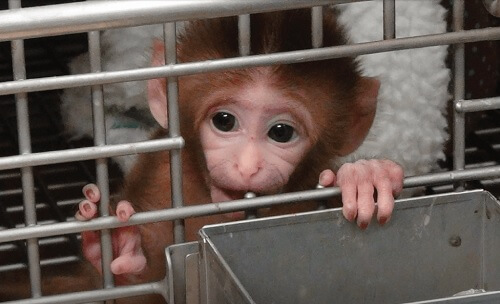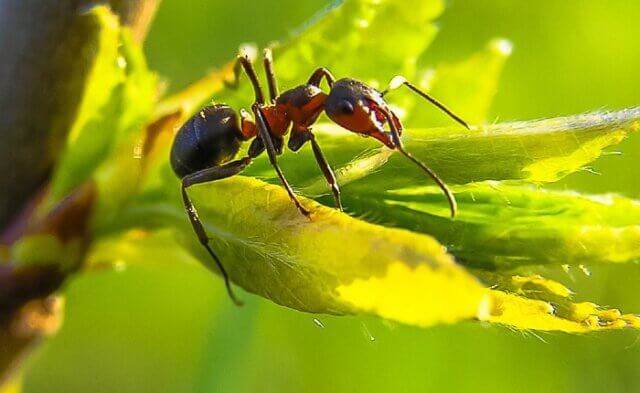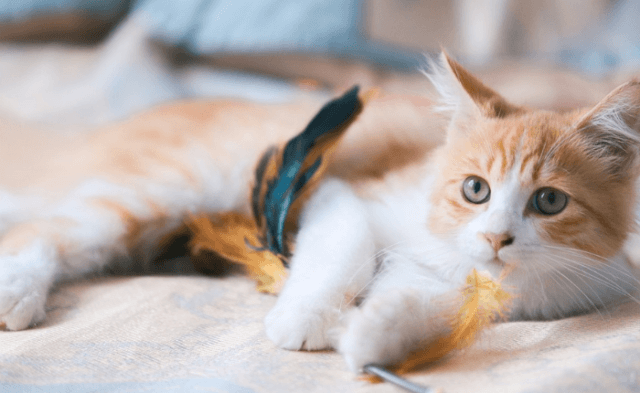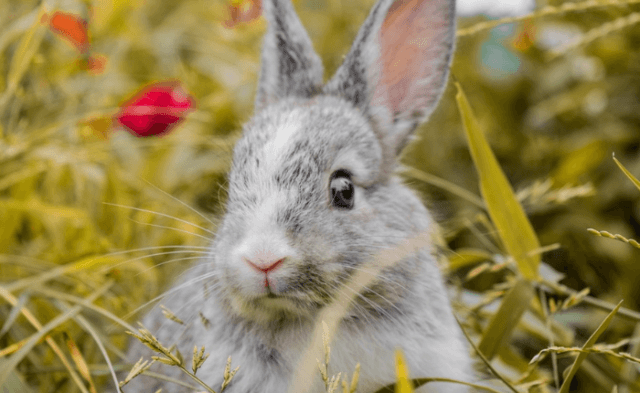One would be hard-pressed to find something that could bring on a smile more quickly than watching monkeys at play. They love to play and can be highly organized about it. In Indonesia, like children lined up to climb the ladder to a diving board, a group of monkeys was observed lining up behind a tree with a long vine hanging over a pond. Each one would climb the tree, jump on the vine, swing out over the pond, plunge into the water, swim back to the bank, and line up to do it again—all for the sheer fun of it.
Monkeys are enviable athletes and highly social, inquisitive, and cooperative with one another. Squirrel monkeys work together to benefit the group, e.g., huddling together to minimize their exposure to the rain. Rhesus macaques are great swimmers—a skill observed in infants as young as 2 days old.
Tufted capuchins spend their nights in tall trees, chosen for security, comfort, and large leaves, which allow multiple individuals to sleep side by side. Male white-fronted capuchins are nurturing fathers who actively participate in caring for their infants. Apparently believing that “it takes a village,” other group members rush to the aid of infant capuchins in distress. White-faced capuchins are very inquisitive and especially interested in taking things apart. Juveniles rely heavily on social learning, observing adults to learn essential behaviors and skills.
Unfortunately, these intelligent animals are exploited in myriad ways by human beings. But PETA is hard at work to protect them from abuse.
In an enormous victory, following an intensive yearlong PETA campaign, the National Institutes of Health (NIH) announced that it is ending its cruel psychological experiments on baby monkeys, a horrendous project that has gone on at NIH for more than 30 years. The laboratory is being closed down, and the lead experimenter will no longer be involved in any experiments on animals. In these archaic maternal-deprivation experiments—which were started by the notorious Harry Harlow in the 1950s and continued at NIH in 1983 after his death—infant monkeys were torn away from their mothers at birth, terrorized with loud sounds and fake snakes, intimidated by human experimenters, addicted to alcohol, and forced to live alone in tiny cages in order to worsen their psychological distress. The agency’s decision came as PETA was preparing to release troubling new videos and e-mails obtained from NIH showing that NIH officials had lied about the project’s status to members of Congress, the media, and others.

Another successful effort in behalf of monkeys is our “Cruelty Doesn’t Fly” campaign. In a successful attempt to block the animal-supply pipeline to laboratories, PETA and our international affiliates have persuaded nearly every major airline in the world— including Air Canada, United Airlines, Air China, China Southern Airlines, and others—to refuse to transport monkeys to experimenters.
Before our campaign, these airlines shipped thousands of monkeys each year to laboratories, where they were poisoned, mutilated, and killed in cruel experiments. Now the number of monkeys in U.S. laboratories has dropped—by more than 15 percent in just the last five years.
We also recently released findings from our investigation into Primate Products, Inc.—a company that imports monkeys and sells them to laboratories. Our field observer spent eight months documenting horrific conditions at the Florida facility, where sick and injured monkeys were sometimes denied adequate veterinary care and forced to live in filthy, barren, and dangerous conditions. Some monkeys paced in circles and rocked from side to side out of boredom and stress, and workers sometimes failed to separate monkeys who had been attacked from their aggressive cagemates, leaving them with exposed bone, bite wounds, and/ or hair loss. Our findings led to more than 25 federal citations for Animal Welfare Act violations and a temporary suspension of federal funding, and we will keep campaigning to shut the facility down for good.
But laboratories aren’t the only setting in which PETA has helped monkeys. We have also persuaded numerous corporations— including Hasbro, Volkswagen of America, T-Mobile, and Hershey Company to pull commercials in which monkeys appeared, and Hasbro and Volkswagen even pledged never to feature primates in ads again!
We also help rescue monkeys from abusive situations whenever possible. For example, we heard about a monkey named Maggie who was purchased on a whim as a “pet,” kept in a cage for 10 years, and forced to breathe secondhand smoke and subsist on a diet of junk food. After learning of her plight, PETA persuaded her owner to relinquish her and arranged for two local supporters to transport her from her neglectful home in Indiana to a primate rescue center, where veterinarians discovered that she was suffering from a serious fungal infection, chronic gastrointestinal disease, and depression. After receiving good veterinary care, Maggie was transported to her permanent home at a reputable sanctuary in Texas, where she is now able to climb trees, swim in a pool, and have monkey friends for the first time in her life.
This article was originally published in PETA’s Augustus Club newsletter. PETA’s Augustus Club is a complimentary club honoring those who are leaving a legacy for animals through a planned gift to PETA. If you have made a planned gift to PETA, please let us know so that we can thank you! If you have not yet left a legacy for animals but would like information on how to do so, please contact us.




